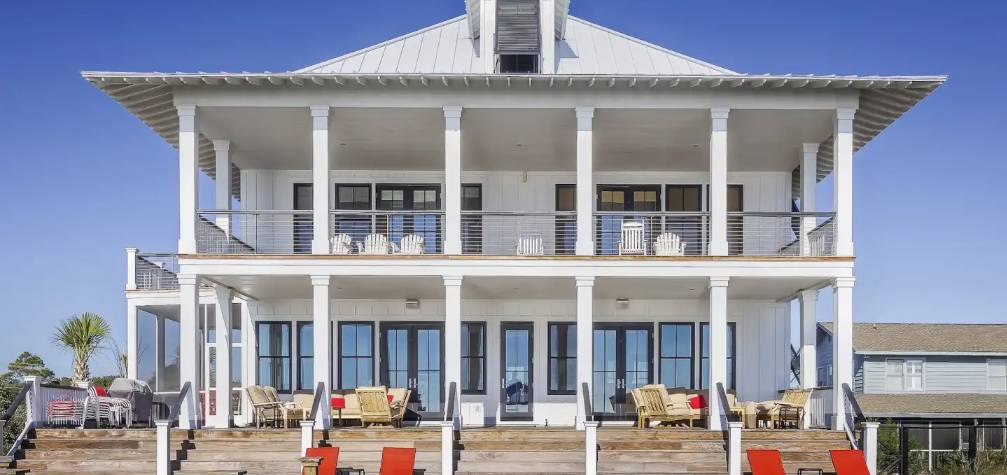The Rise of Smart Homes: Real Estate Meets Technology
6 min read
13 Mar 2025
The real estate landscape is undergoing a transformative shift as technology continues to play an increasingly integral role in our daily lives. One of the most prominent manifestations of this change is the rise of smart homes. Smart homes leverage cutting-edge technology to enhance convenience, security, energy efficiency, and overall quality of life for homeowners. In this guide, we will explore the concept of smart homes, their impact on the real estate market, and the exciting possibilities they offer for the future of home ownership.
What Are Smart Homes?
A smart home is a residence equipped with a network of interconnected devices and systems that can be controlled remotely and automated to perform various tasks. These devices are typically connected to the internet and communicate with each other through a central hub or smartphone app. The primary goals of smart homes are to improve efficiency, enhance comfort, increase security, and provide homeowners with greater control over their living spaces.

Key Components of Smart Homes
Home Automation: Smart homes are equipped with automation systems that allow homeowners to control various functions, such as lighting, heating, ventilation, and air conditioning (HVAC), appliances, and entertainment systems, through a single interface.
Smart Assistants: Voice-activated virtual assistants like Amazon's Alexa, Google Assistant, and Apple's Siri have become central to many smart homes, enabling users to control devices, ask questions, and perform tasks through voice commands.
Smart Lighting: Smart lighting systems allow homeowners to remotely control and program lighting settings to match their preferences, enhance energy efficiency, and provide added security.
Security and Surveillance: Smart homes often feature advanced security and surveillance systems, including smart locks, video doorbells, motion sensors, and cameras that provide real-time monitoring and alerts.
Smart Thermostats: These devices learn the homeowner's temperature preferences and adjust HVAC settings accordingly, optimizing energy usage and reducing utility bills.
Entertainment Systems: Smart TVs, speakers, and sound systems can be seamlessly integrated into the home network, allowing homeowners to stream content, control audio zones, and create immersive entertainment experiences.
Impact on Real Estate
The integration of smart home technology is transforming the real estate industry in several significant ways:
Increased Property Value: Smart homes tend to have higher resale values, as potential buyers are willing to pay a premium for the convenience and energy efficiency these systems offer.
Competitive Advantage: Sellers who invest in smart home technology gain a competitive edge in the market, attracting tech-savvy buyers looking for modern, connected living spaces.
Improved Marketing: Smart home features are often highlighted in property listings and marketing materials, enticing prospective buyers and showcasing the property's technological advancements.
Energy Efficiency: Smart homes are inherently more energy-efficient, with features like smart thermostats and lighting systems contributing to reduced utility costs. This eco-friendliness is increasingly appealing to environmentally conscious buyers.
Remote Monitoring: Homeowners can monitor their properties remotely, which is particularly valuable for real estate investors and those who use their homes as vacation rentals.
Future Possibilities
The evolution of smart homes is far from complete. The following trends and possibilities are on the horizon:
Enhanced Connectivity: The Internet of Things (IoT) will continue to expand, enabling even greater connectivity and integration among devices, systems, and appliances within the home.
Energy Independence: Smart homes may become more self-sufficient with the integration of renewable energy sources such as solar panels and advanced energy storage solutions.
Health and Wellness: Smart homes may incorporate health monitoring systems to track vital signs and provide health alerts, making them valuable for an aging population.
Virtual Reality (VR) and Augmented Reality (AR): These technologies could be used for virtual home tours, interior design simulations, and interactive property showcases.
Enhanced Security: Advanced facial recognition, biometrics, and AI-powered security systems will provide even greater protection against security threats.
Sustainability: Smart homes will continue to prioritize sustainability with eco-friendly features such as rainwater harvesting, green roofs, and advanced recycling systems.
Voice and Gesture Control: Interaction with smart homes will become more intuitive with improvements in voice recognition and gesture-based control.
Conclusion
The rise of smart homes represents a significant evolution in real estate, offering homeowners increased convenience, efficiency, and security. As technology continues to advance, smart homes will become even more integrated and sophisticated, providing new possibilities for homeowners and investors alike. Whether you're buying, selling, or simply considering ways to enhance your living space, embracing the smart home revolution can elevate your real estate experience and future-proof your home in an increasingly tech-driven world. As smart homes become the new standard, the future of real estate is undoubtedly intertwined with technology.


